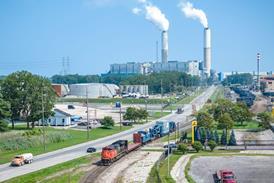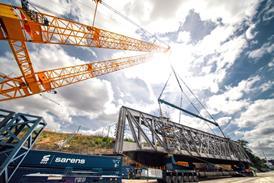September 7 - A global oversupply of LNG, in addition to a spate of new LNG projects due for final investment decision (FID) in 2015/16, could depress the market for LNG in Asia until 2025, says analyst Wood Mackenzie.
Wood Mackenzie said the number of LNG projects proposed to undergo a FID in the next 18 months has not reduced significantly in the face of LNG oversupply. In comparison, 45 major oil and gas projects have postponed FID in the first nine months of 2015.
Noel Tomnay, vice president global gas and LNG research for Wood Mackenzie says: "With the LNG market facing a wall of new supply just as China's gas demand growth has faltered, it is surprising how few new projects chasing a FID have been postponed."
The current global LNG supply presently stands at 250 million tonnes per annum (mmtpa), with a further 140 mmtpa under construction. "Recognising that the global market will struggle to absorb such a large supply uptick, for some time now we've been forecasting a soft global market. However that bearish prognosis is now being exacerbated by a demand downturn," said Tomnay.
Conditions in the Asian market, particularly China, are key to this revised outlook. China's LNG import commitments are forecast to rise by 17 percent year-on-year between 2015-2020 from 20 to 41 mmtpa. However, slumping demand during 2015 has seen LNG imports fall by 4 percent year-on-year.
The long-term forecast for LNG demand is also being negatively affected, said Tomnay: "With lower industrial output and power generation competition increasingly characterising other key Asian LNG markets, like South Korea, Asian buyers are not in a hurry to finalise new LNG contracts."
Wood Mackenzie said its view is that opportunities for new LNG into Asia will not open up significantly until 2022, meaning that new project FIDs will not be required until 2017 at the earliest.
With these factors in mind, BG Group postponed its proposed US LNG export facility at Lake Charles. However, this has been one of the only major casualties in the sector; it begs the question as to why other players have not followed BG Group's example? Tomnay observes: "Postponement could invalidate contracts for the portion of project LNG sold so far, and jeopardise hard-won stakeholder support, including from local communities. Some developers may be worried that a loss of momentum could favour their competitors and that a project postponement may be tantamount to a cancellation."
Wood Mackenzie highlights that some 50 mmtpa of LNG projects in the USA, plus a further 50 mmtpa from outside the US, will see FID within 6-18 months. "Wood Mackenzie's view is that the global LNG market does not need all this LNG at the pace proposed and, as companies confront this reality, a raft of project postponements will follow," Tomnay warned.
For those engaged in the movement of heavy and oversize cargoes, favourable final investment decisions for these aforementioned LNG projects would generate a huge amount of work. However, Wood Mackenzie's research suggests that many face delay, or being postponed indefinitely.















